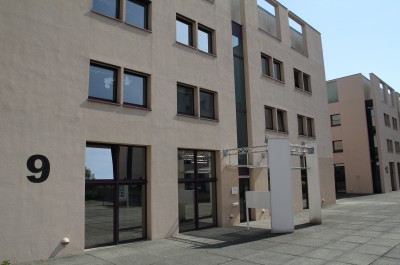| Project period |
01.12.2023 – 31.03.2024
| Project staff |
Prof. Dr. Tillmann Bartsch (project manager)
| Cooperation partner |
Prof. Dr. Joachim Renzikowski, Chair of Criminal Law, Philosophy of Law/Legal Theory at Martin Luther University Halle Wittenberg
| Client and funding |
Arbeit und Leben Berlin-Brandenburg DGB/VHS e.V.
| Project description |
Human trafficking violates fundamental constitutional (Article 1 (1) of the Basic Law) and European (ECHR, CFR) provisions, which is why the German state is obliged to take effective measures against human trafficking and to protect those affected by it, even against the backdrop of years of increasing refugee movements.
As a consequence, victims of human trafficking are granted special rights. One of these rights is the non-punishment principle (NPP) based on Art. 8 of EU Directive 2011/35. It obliges the member states to grant the competent national authorities the power, under certain conditions, to refrain from prosecuting victims of human trafficking if they were forced to commit criminal offences due to human trafficking offences committed to their detriment.
To date, very little information is available on the application of the NPP in Germany. However, observations and assessments to date suggest that persons are prosecuted to a relevant extent – contrary to the NPP – for offences such as illegal entry, illegal residence or illegal employment, even though there are clear indications that they could be victims of human trafficking. This could not only contravene international standards, but also make it considerably more difficult to prosecute human trafficking as a whole, as victims may refrain from making important statements and reports for fear of being prosecuted themselves.
Against this background, the project aims to examine whether the legislative measures taken to implement the NPP are sufficient, how law enforcement practice handles the NPP and whether there is a need for reform. To this end, an overview of the relevant legal norms for the implementation of the NPP will be compiled, a comparison of the international requirements will be made and interpretation aids for application in Germany will be developed. With regard to the implementation of the NPP in practice, examples of the application or non-application of the NPP will be collected and the current handling of the NPP will be analysed.
The project therefore consists of an in-depth legal-dogmatic analysis, for which Joachim Renzikowski from the University of Halle-Wittenberg is primarily responsible, and a legal-statistical part carried out by the KFN. From an empirical perspective, expert interviews are to be conducted with representatives of the public prosecutor’s office, the police and the Financial Control of Illegal Employment to identify any practical problems. In order to take the victims’ perspective into account, interviews with representatives of joint plaintiffs are also planned. In addition, the data from the file analysis of an earlier KFN project on the “Evaluation of criminal provisions to combat human trafficking” will be used to assess application practice and name practical examples. Finally, based on the dogmatic and empirical findings, legal and application-related problems will be identified and, if necessary, reform proposals will be made.

